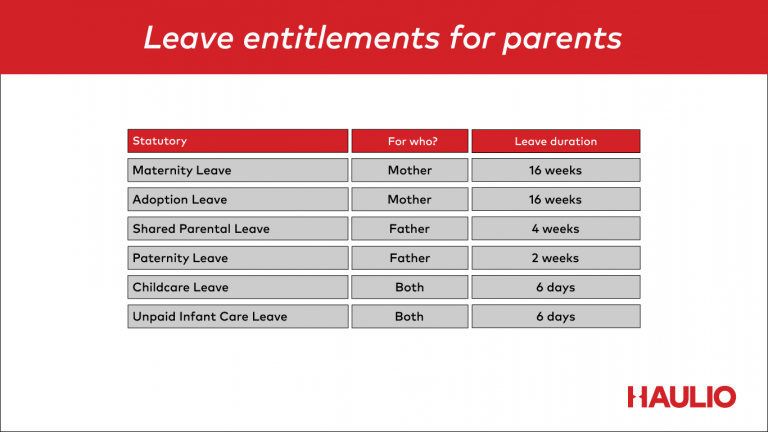Why the Future of Logistics Needs More Women
Importance of gender equality in workplaces in Singapore
Not only is gender equality a fundamental human right, a report by an Australian government agency shows that it is also associated with improving national productivity and economic growth, increased organisational performance and enhanced organisational reputation.
It will take the entire industry to recognize that bringing diversity into the workplace is important. It is time the logistics and supply chain industry – as well as many other industries – take measures to attract more women to our professions.
Gender equality in the logistics sector
The steady rise of ecommerce and the focus on trade has put the spotlight on logistics. The logistics professions has always been perceived as masculine – all about physical work involving moving and lifting. It is not surprising why people consider logistics as a male-dominated industry, bolstering masculine stereotypes that make it difficult for women to excel.
We had a conversation with Miss Felicia Loh, Head of Twill – a Maersk digital innovation platform, to find out more.

She recalls, “When I attended a customer event recently in Hong Kong, you could count the number of females with one hand. However, I do see the trend changing as we start to see a lot of women now. In fact, most of the senior management in Twill are females while all the area heads in Asia are females as well. “
Supply chain and logistics imbues every industry and business sector worldwide. The sheer immensity of the industry has created jobs in business development, customer service, sales, information technology and R&D. Yes there are still warehouse workers and forklift drivers but there are leadership roles that require exemplary comprehension of business management. Regardless of gender, the industry calls for innovative thinkers and problem-solvers to drive progress.
Is Singapore doing enough?
With the introduction of shared parental leave and doubling of the paternity leave entitlement for fathers in 2017, the Singapore government is setting measures in place to ensure adequate work-life balance as well as provide support for parents to share caregiving responsibilities, allowing fathers to get more involved in raising their children.

These initiatives dispels any gender specific stereotypes such as the traditional perspective of depicting women as the “caregivers” and men as the “breadwinners” of the family. Such stereotypes can also affect women’s participation in the workforce and the duration, quality and type of jobs they are able to pursue.
What can employers do?
A study from McKinsey & Company in 2018 showed that companies with the most culturally or ethnically diverse boards worldwide are 43% more likely to experience increased profits., reiterating the point that gender diversity is correlated with both value creation and profitability. Companies need to focus on improving internally by practicing gender diverse policies in order to enhance the organisation’s ability to attract talents as well as improve it’s overall manpower structure. Here are some actionable measures that employers can consider:
Focus on inclusive hiring efforts
When workplaces are equally appealing to men and women, companies are naturally drawn to a large talent pool. To broaden that talent pool, companies are creating women-focused talent retention programs, providing female mentors to employees and working to eradicate unintentional biases by including more women in the hiring process itself. Removing opportunities for bias to occur in the hiring process can serve as a considerable first step.
Redefine workplace roles
In the past, men were hired for hands-on-work while women were put in the back lines, in administrative office roles. Men would eventually gain more responsibility over time and climb the ranks within a company. Women, however, would continue to work behind the scenes. However, as the world digitizes it’s processes, many manual operations have now been automated. One such reason why Miss Loh loves the logistics industry is because of digitalisation. She explains, “digitalisation is an overused word but this is an area where we have seen the most changes in the last 5 years. From the simple EDI connection to Blockchain technology and from static pricing to dynamic pricing – we are just touching the tip of the iceberg”. With logistics transforming into a cutting-edge, high tech industry, female problem solvers have many opportunities to join the industry.

Build and support a gender balanced team
There are great benefits when a company cultivates workplace diversity and a culture that talented people gravitate towards, be it men or women. Teams with diverse backgrounds are better in promoting a work environment where it can spawn greater ideas, encourage stronger team commitment and solve problems more effectively. A Facebook post by National Trades Union Congress assistant secretary-general Patrick Tay highlighted that it is important to ensure women have access to more diverse job opportunities and higher value-added jobs, and to improve access to training especially for workers with lower pay.
Eliminate the gender pay gap
Within the past decade, Singapore has made significant progress towards gender equality, with the pay gap between men and women tremendously narrowed. A recent study conducted by the Ministry of Manpower found that in 2018, Singapore’s gender pay gap was 6%, compared to the 8.8% in 2002. However, the gender pay gap is still prevalent, women are still paid lesser than men, even if they are doing the same job and have the same set of skills and qualifications as their male counterparts.
Thankfully, companies in Singapore are taking action. Citibank, one of the world’s biggest banks, recently announced that they had revised the pay of women at its bank. Its female staff did not receive equal compensation when compared with their male peers of equal work performance.
Looking ahead
in 2017, Halimah Yacob was elected as president, making history as Singapore’s very first female head of state. With such progress, Singapore works to solidify her stance towards gender equality. Also, the reduction of the gender pay gap from 8.8% to 6% also demonstrates the leaps of our progress.
In 2018, the World Economic Forum (WEF) studied the gender gap globally and ranked Singapore at 67th among the 149 countries that were studied. Today, out of 153 countries that were in the report, Singapore ranked 54th. A huge improvement of 13 ranks up. Beating countries like Thailand, Japan and South Korea.
Miss Felicia Loh left us and all women with a great piece of advice – “Be brave and don’t be afraid to try out new things! Be that #girlboss that you set out to be.”
Yes, we are taking steps towards a gender-balanced society and it looks like a gender-balanced future is not too far away.

References
- https://blog.moneysmart.sg/opinion/international-womens-day-gender-equality-singapore/
- https://www.britcham.org.sg/static-pages/gender-equality-in-singapore-2018
- https://www.straitstimes.com/singapore/manpower/adjusted-gender-pay-gap-narrows-over-more-than-a-decade
- https://www.straitstimes.com/singapore/parliament-fathers-to-get-longer-paternity-leave-and-shared-parental-leave-from-2017
- https://www.catalyst.org/research/women-in-male-dominated-industries-and-occupations/
- https://wgea.gov.au/topics/workplace-gender-equality/the-business-case
- https://www.theceomagazine.com/business/management-leadership/why-the-future-of-logistics-needs-more-women/
- https://www.aware.org.sg/2019/03/are-we-there-yet-taking-stock-of-the-challenges-women-in-singapore-face-today/
- https://www.thomasnet.com/insights/women-in-supply-chain-and-logistics-closing-the-gender-gap/
- https://www.jobstreet.com.sg/en/cms/employer/are-employers-doing-enough-to-address-gender-equality-in-the-workplace/
- https://www.straitstimes.com/business/economy/citi-singapore-adjusts-pay-for-women-who-do-same-work-as-men
- http://www3.weforum.org/docs/WEF_GGGR_2018.pdf


